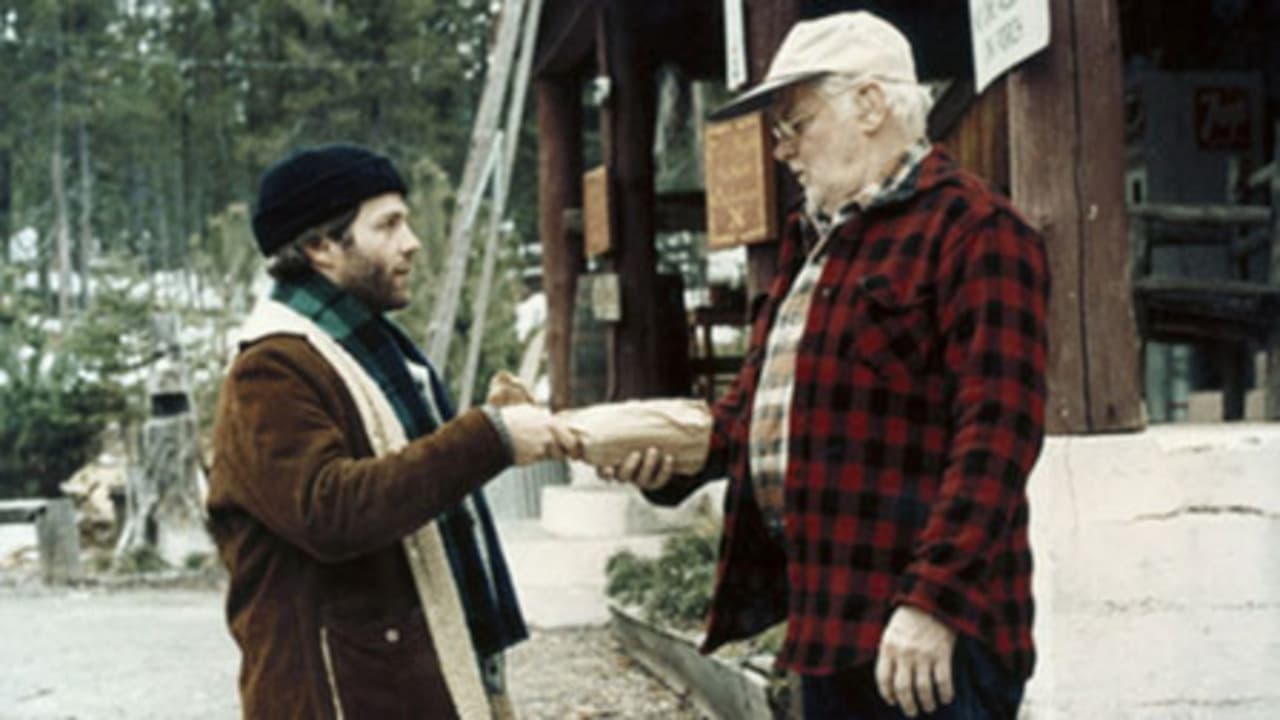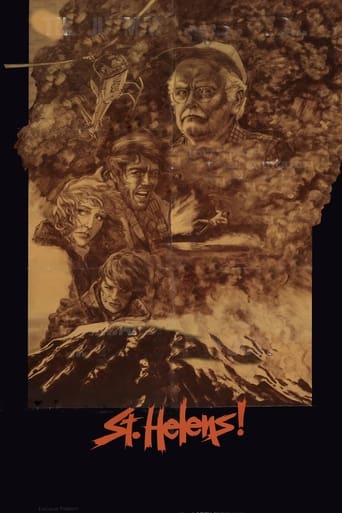

I love this movie so much
... View MoreSlow pace in the most part of the movie.
... View MoreGreat visuals, story delivers no surprises
... View MoreThe movie really just wants to entertain people.
... View MoreThis film is pretty good for emotion and drama. I've been to St. Helens and love the region. It's largely grown back and is green and fertile again, dominated by the stark gray gutted monolith of the mountain. In a way, it's a tombstone of granite and pumice, still steaming and hot despite more than two decades of slumber. Very somber and impressive sight. I liked the movie the first time I saw it probably about 20 years ago on TV. It was cut a bit for commercials so I probably saw about 75 minutes so there were a few plot holes, but nothing to worry about. After all, it's a fictionalized docudrama. The only real characters? Harry Truman (Carney in a real departure from Ed Norton), the crusty old soldier who won't do what he don't want to. He's earned the right to die on his own land. And David Jackson (Huffman) who is based on the late David Johnston who died on the mountain in the eruption. He's portrayed as the antithesis of Truman, a calm dreamer who hates stupidity and bureaucracy (one and the same) in the local businessmen and NGS officials. He and Harry hit it off despite their differences and find common ground in the love of the mountain about to destroy everything. I rather liked Tim Thomerson, the sheriff, who's out of his usual stand-up routine but a 'stand up guy' in the local community, as he tries to keep peace as the drama unfolds. The Huffman/Yates love interest? Probably untrue, and in my opinion, unnecessary in the film. A bit of country-western 'local yokels' in the bar, getting to know one another is a decent way of helping us like the town and the folks, but one wonder something. For instance, why does Cassie Yates and her son, who have a car, get a helicopter ride out of danger? And when the news report of the eruption comes on, the first thing they say is that Harry Truman was at his lodge and David Jackson, the 'Young Geologist' was on the face of the mountain when it erupted. Fast work. The end theme, "Here's to You, Harry Truman," is a pretty good ballad, and catchy, even if old Harry himself would probably have scoffed at the overly maudlin lyrics. "Sounds like pigs being murdered." The film of the eruption and the later destruction are impressive and gut-wrenching. It was a huge disaster which flattened thousands of acres of forest and wilderness. Yet, if you go up to St. Helens, the thing you'll be most surprised by is the roadside attractions. "ST. HELENS: FEEL THE ERUPTION! EXPERIENCE THE DESTRUCTION, THE QUAKE, THE POWER, from the comfort of a chair. All over the place, you can see movies, buy lava chunks and explore houses buried under ash. What a country.
... View MoreCall me an immature little boy, but i've had a more profound experience just watching a documentary on Mount St. Helens. To that end, there was actually some real footage of the eruption mixed in there somewhere. Now that was good, about all that actually was good in this dumb movie. (some people might think of this as a spoiler) The actor who plays Harry Truman is. Way. Too. Young. Truman was probably in his seventies, the actor looks like he's barely out of his fifties.This movie runs about ninety minutes. Am I ever thankful for that, ninety minutes of sheer torture magnified by the fact that they swear (i'm talking S-words here) like it's 1999 just all the time. they must swear at least three times every scene. I'm telling you, it's out of control.The only good line in the whole movie is "Ahh, hayte bahg pypes!" oh, sorry, translated version: "I hate bagpipes!" That line has become legendary around my house.1 star is way too many. if given a choice i'd give it 0.00000001 stars. Watch a Mount St. Helens documentary instead.
... View MoreFirst I must take issue with the reviewer who found this film boring because he classed it as a disaster movie, and felt there was not the suspense necessary for a good disaster movie. Personally I would question whether disaster movies really comprise a distinct category - they are dramas in the thriller category where the more usual dramatic excitement of violent action is replaced by the tension of waiting to see whether or not the impending disaster can be staved off. To maintain this tension, such a movie has to be based on a fictional story. By contrast, films of real events can be full documentaries which were filmed only in advance or concurrently; or semi-documentaries in which some of the essential scenes have had to be fictionally, but as accurately as possible, reconstructed and filmed after the event. St. Helens clearly fits this latter category. Such films should have a sufficiently dramatic story to retain the viewers interest throughout, but they also have a very important role to play in conveying to the general public in dramatic terms the actual impact of the event in question on the lives of the ordinary people who were affected. We judge the success of semi-documentaries from the extent to which they succeed in satisfying these two objectives. In my view St. Helens meets both objectives well, and was artistically a most successful film. Volcanic eruptions are not rare events, but the eruption in North America of a volcano generally regarded by the public as extinct, attracted enormous public attention as events unfolded day by day. Millions in North America experienced dull skies and falling ash over a period of several days, and those of us who are old enough remember the story very well. Ultimately this eruption cost fifty nine lives, but two of these in particular provided the media with ongoing human interest stories and later provided the core story for this movie. One was the young geologist from the U.S. Geological Survey who allowed his enthusiasm to run away with him to such an extent that he was conducting monitoring in an area very close to the mountain when the eruption took place. He saw it happen, and had time to report it by telephone before he was overwhelmed by the escaping gases or falling rocks. The other was the elderly retired man living alone in a cabin on Spirit Lake very close to the volcano who consistently refused to be evacuated until too late. These are the principal characters in this semi-documentary, and both are portrayed very sympathetically so that their self destructive behaviour becomes quite understandable. I would rate this as a very good film - I also have an 'official' full documentary account of this eruption on videotape, it provides many interesting facts about the scientific impact on the area; but this dramatised semi-documentary with its human interest stories is the one which will bear watching repeatedly, and it is commendably careful not to seriously distort any of the facts in the interests of artistic licence. We may never be near a volcano that is threatening to erupt, but we read about such eruptions each year and this film helps to give us a better understanding of what one is really like.
... View MoreThe movie St. Helens was a bit slow, especially how the film was drawing up the timelines. Simply I knew what I was waiting for during the whole time was May 18, 1980 at 8:32 a.m. for the "big explosion." Needless to say, the film was a bit dull but that is almost an unfair comparison when its compared to witnessing Mt. St. Helens unleash her fury in real life. What mountain is next?
... View More